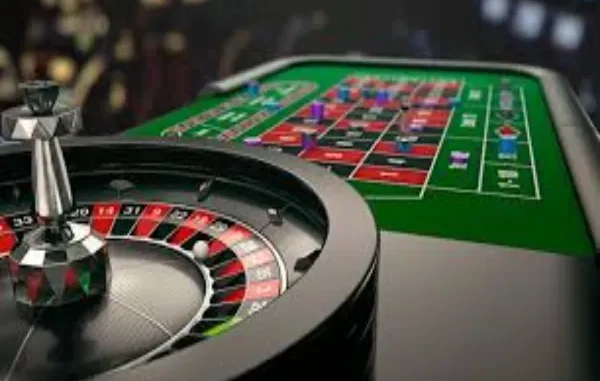
From evolutionary biology to quantum physics, humankind’s relentless pursuit of knowledge covers an astonishing breadth of topics. Yet one fascinating area of research that often goes overlooked lies within our own behavior—particularly, the reasons we’re drawn to risk-taking and reward systems. This curiosity leads us into the realm of casino games, where psychology, probability, and neuroscience blend to shape the highs and lows experienced by players worldwide.
1. The Psychology of Taking Chances
Gambling is, at its core, a study in behavioral psychology. Although it might look like a simple spin of the roulette wheel, underlying our reactions are complex processes involving cognition, emotion, and motivation. Psychologists often use gambling scenarios to understand concepts like “intermittent reinforcement”—the idea that rewards delivered unpredictably can be especially powerful motivators. According to a Scientific American article on reward circuitry, our brains release dopamine in anticipation of a potential gain. This biochemical surge can be as influential as the win itself, encouraging us to repeat the behavior even when the odds are not in our favor.
- Loss Aversion: Humans naturally dislike losing more than they like winning. This bias can push individuals to chase losses, increasing risk-taking behavior in an effort to break even.
- Near Miss Effect: Psychologists have found that “almost winning” triggers regions in the brain similar to an actual win, motivating players to keep trying.
2. Probability and Mathematics: Making Sense of Randomness
Beyond the psychological pull, casino games offer a real-world laboratory for exploring probability theory—a bedrock of mathematics that describes how likely events are to occur.
- House Edge: Designed using statistical models, each casino game typically has a slight advantage (“house edge”) favoring the platform in the long run. While one player may experience a string of luck, the underlying math ensures that, on average, the house retains a consistent profit.
- Law of Large Numbers: This principle states that as the number of trials increases, the results will converge on the expected probability. Over many spins of a roulette wheel, for instance, any short-term anomalies level out, and statistical expectations become reality.
- Random Number Generators (RNGs): In virtual settings, RNG algorithms ensure that results like dice rolls, card deals, or slot outcomes mimic randomness closely. Reputable sites often get certified by third-party auditors who evaluate whether the RNGs meet fair-play standards.
For a deeper dive into the mathematics behind randomness, Khan Academy offers free tutorials that break down everything from basic probability to more advanced statistical concepts.
3. Neuroscience and the Reward Circuitry
No look at gambling would be complete without a focus on neuroscience. Modern research uses brain-imaging technologies—like fMRI and PET scans—to observe how neural pathways react when we anticipate or receive rewards.
- Dopamine Pathways: Known as the “feel-good chemical,” dopamine is heavily implicated in motivation and learning. According to Harvard Health Publishing, the bursts of dopamine that occur during gambling can create a cycle of pursuit and reward, sometimes leading to patterns of compulsive behavior in susceptible individuals.
- Risk Processing: Different areas of the brain, such as the prefrontal cortex, are key in evaluating risks and making calculated decisions. High excitement can sometimes override logical reasoning, explaining why even analytical people can get swept away by high-stakes bets.
4. Social Dynamics and Community Building
While casino games can be solitary—especially in online formats—they often have a social aspect as well. Live dealer games, shared online forums, and multiplayer tournaments allow people to connect from around the globe. This communal experience can heighten the emotional stakes:
- Team Spirit: Poker nights, whether virtual or in-person, foster camaraderie and collective storytelling, turning gambling into a social event.
- Competition and Collaboration: Tournaments can fuel friendly rivalries and spur teamwork (in multi-person table games or partner-oriented scenarios), giving participants a sense of belonging.
5. Responsible Engagement in a Technological Era
As digital platforms proliferate, more people than ever have immediate access to games of chance. Innovations in mobile technology, cryptocurrency payments, and live streaming have reinvented the entire gambling landscape—bringing convenience but also new concerns. Researchers emphasize awareness as the best safeguard:
- Set Clear Limits: Understanding the science behind gambling can help you recognize early signs of problem behavior. Setting time or money limits can maintain a sense of control.
- Stay Informed: Regulatory bodies and third-party auditors exist to protect players, ensuring fairness in digital environments. Seek platforms that are transparent about their random number generation and house edge.
- Community and Moderation: Engaging with others who value healthy enjoyment over high-risk indulgence can help keep the experience positive.
Conclusion
Casino games offer more than a fleeting thrill; they serve as a fascinating lens for studying human psychology, probability, and the brain’s reward mechanisms. By unpacking the science behind gambling, we see how our own biology and cognition interplay to shape our experiences, often without our full awareness. For those who choose to participate, a well-rounded understanding of these forces—coupled with moderation—can transform gambling from a risky pastime into an enlightening glimpse at the complexities of human nature. Whether you’re an avid player, a curious observer, or a scientist at heart, exploring this dynamic world reveals just how deeply woven our desires for reward and connection truly are.
Leave a Reply